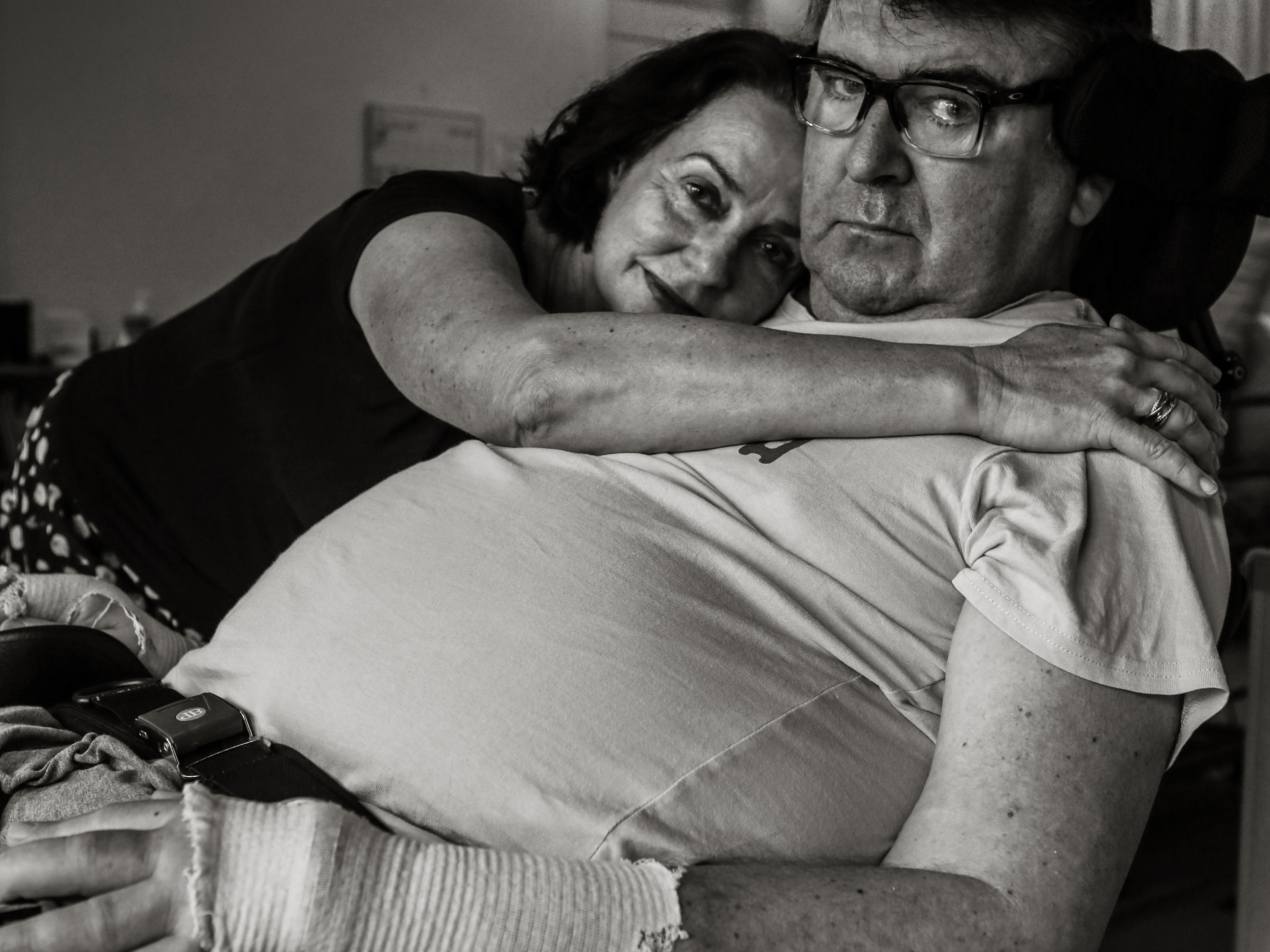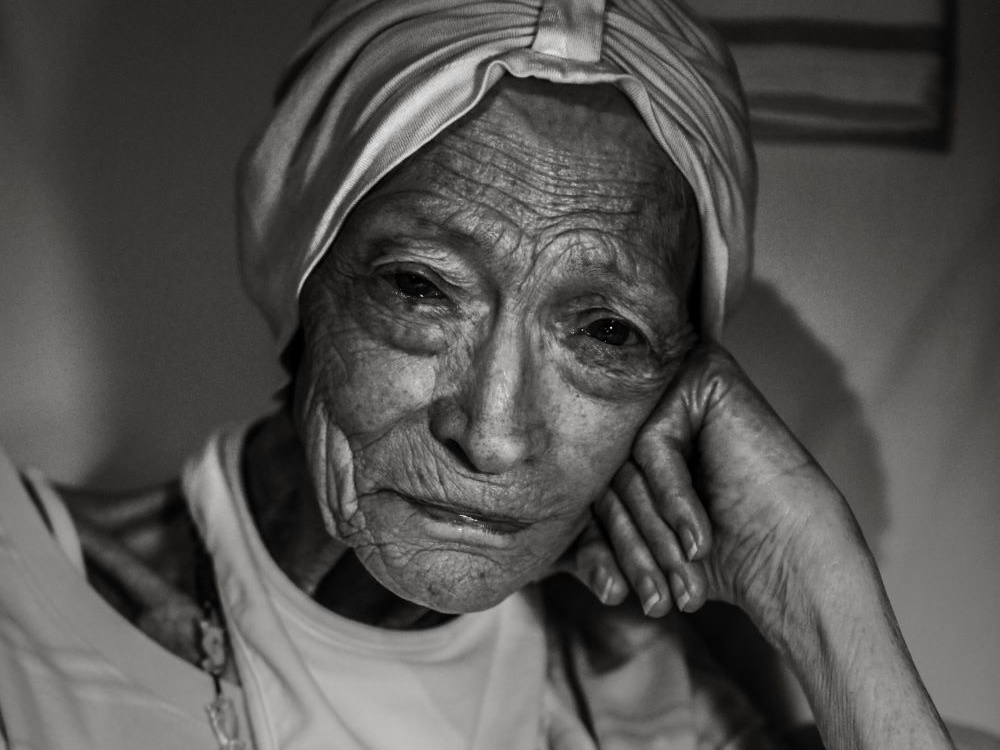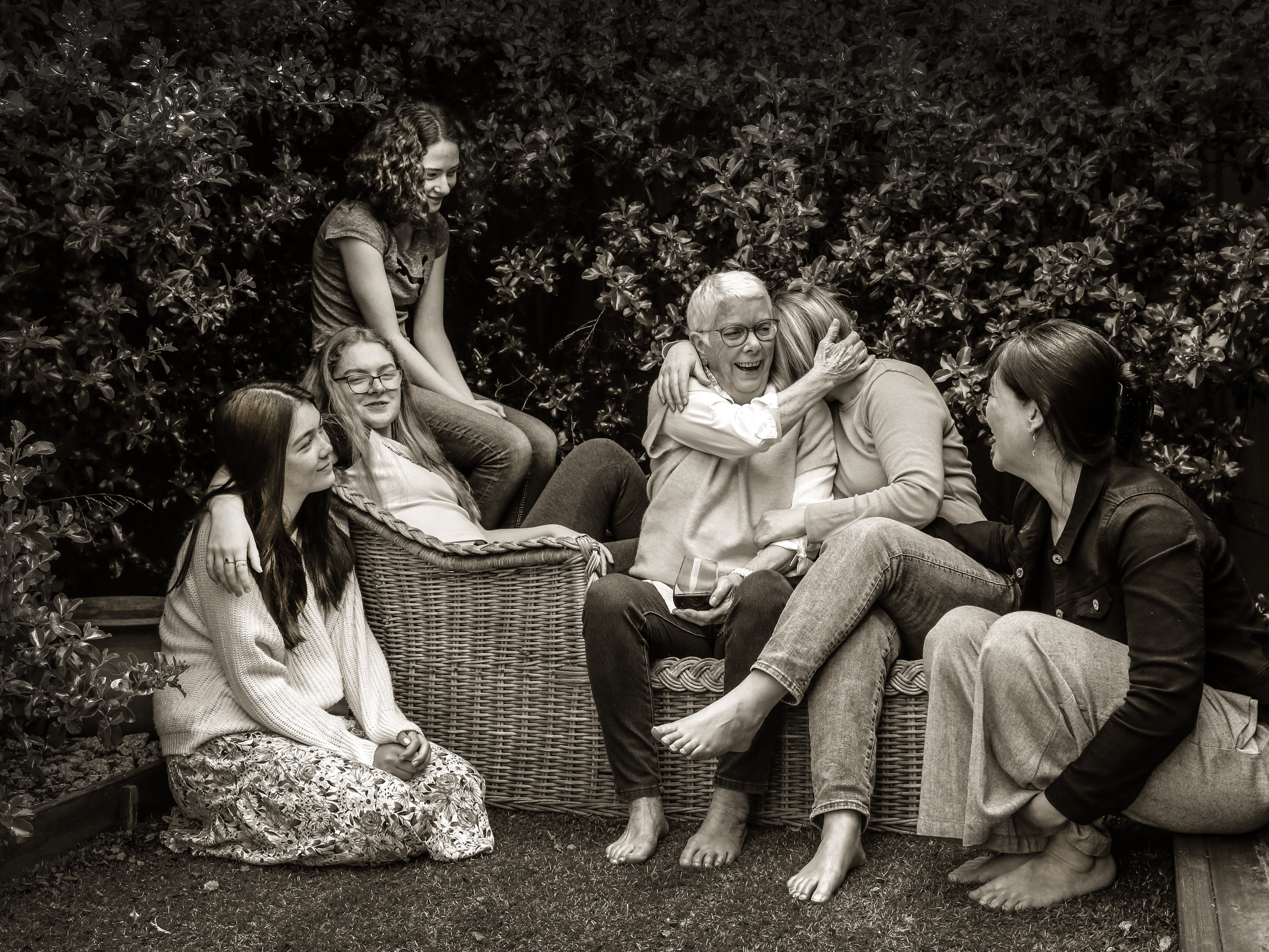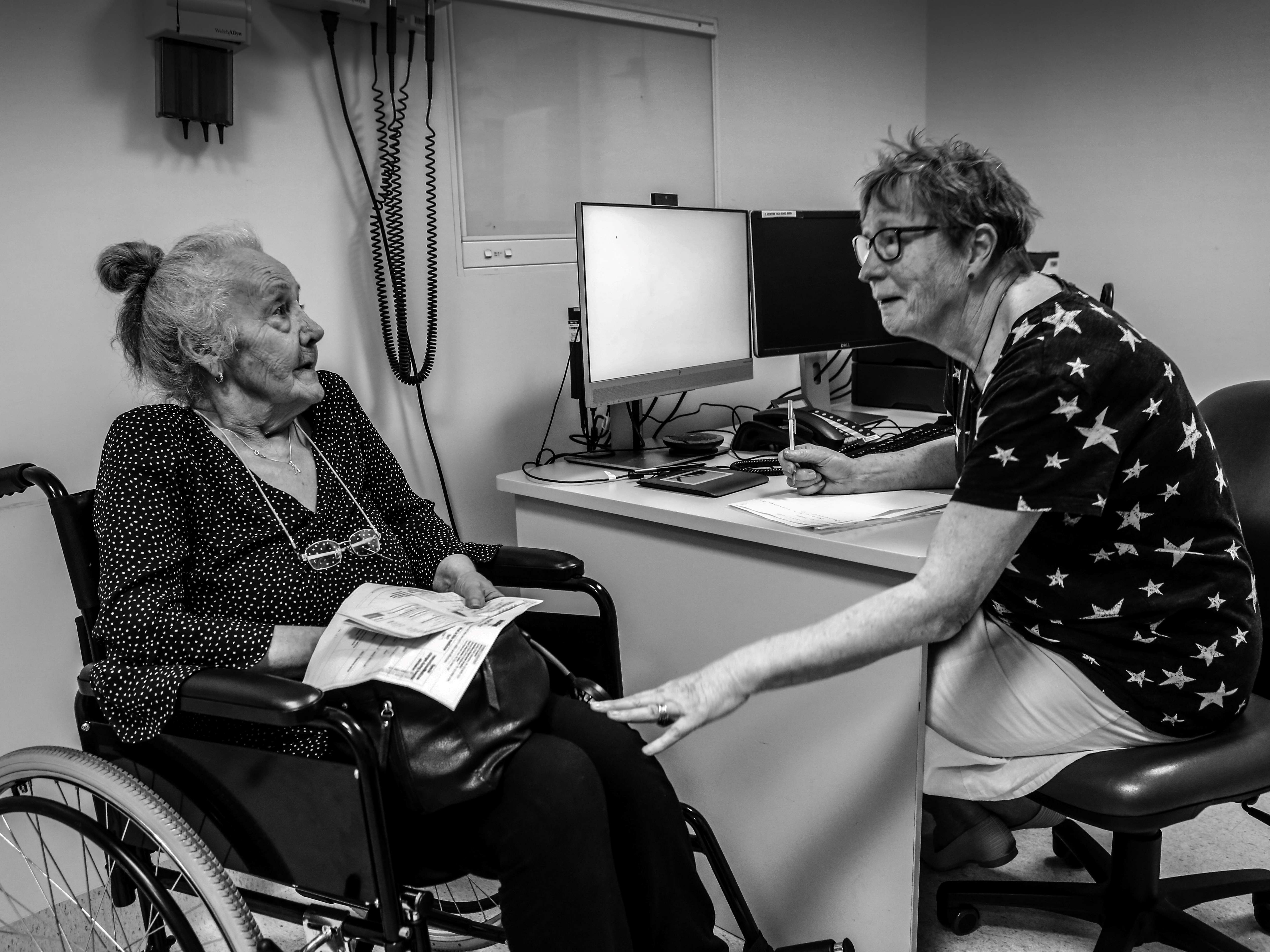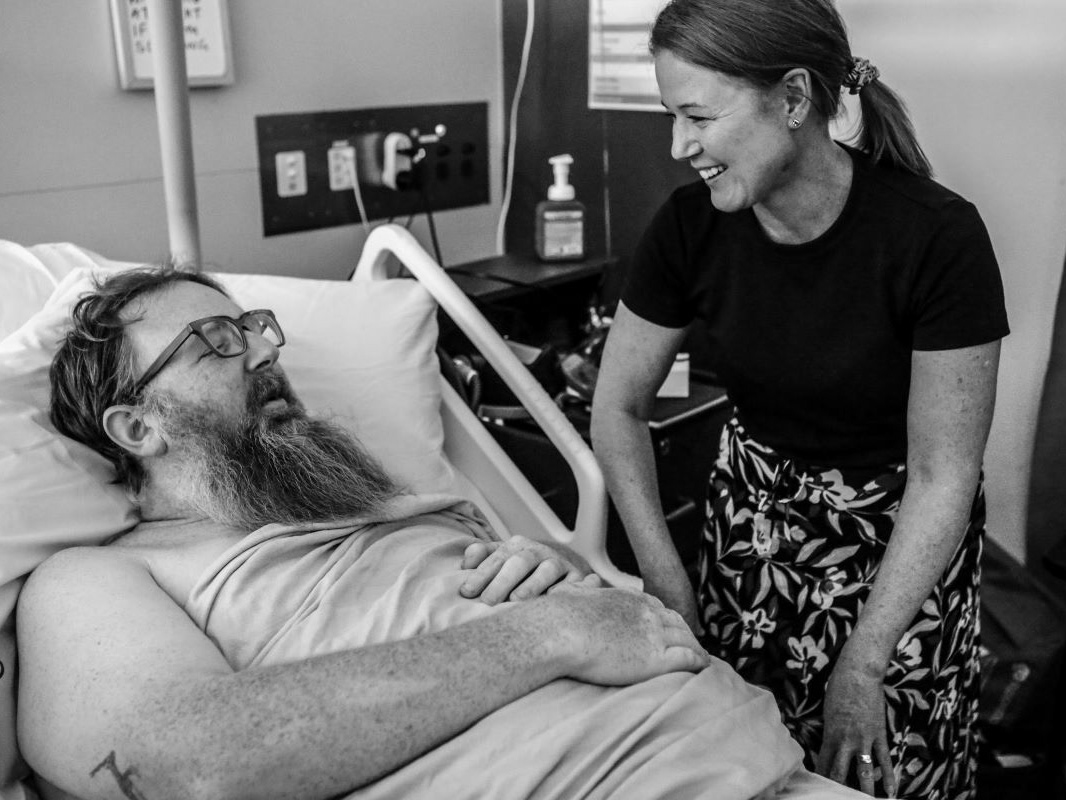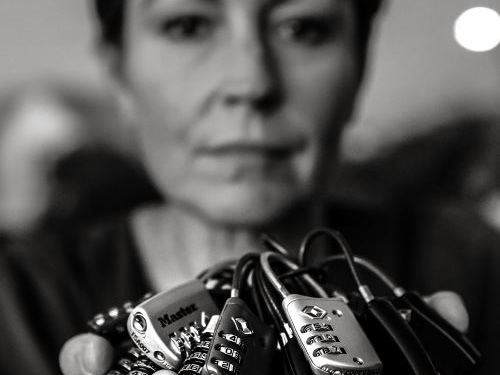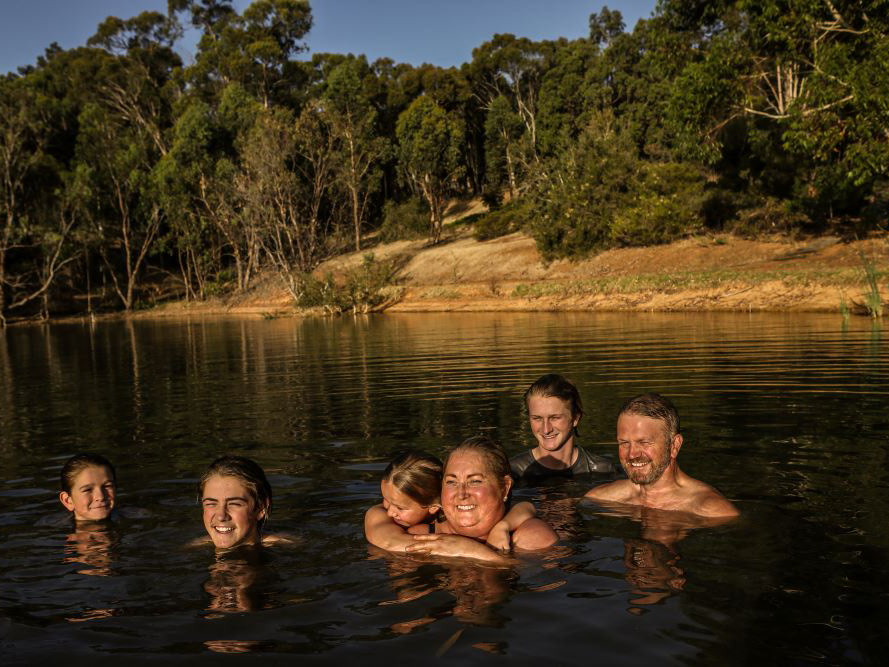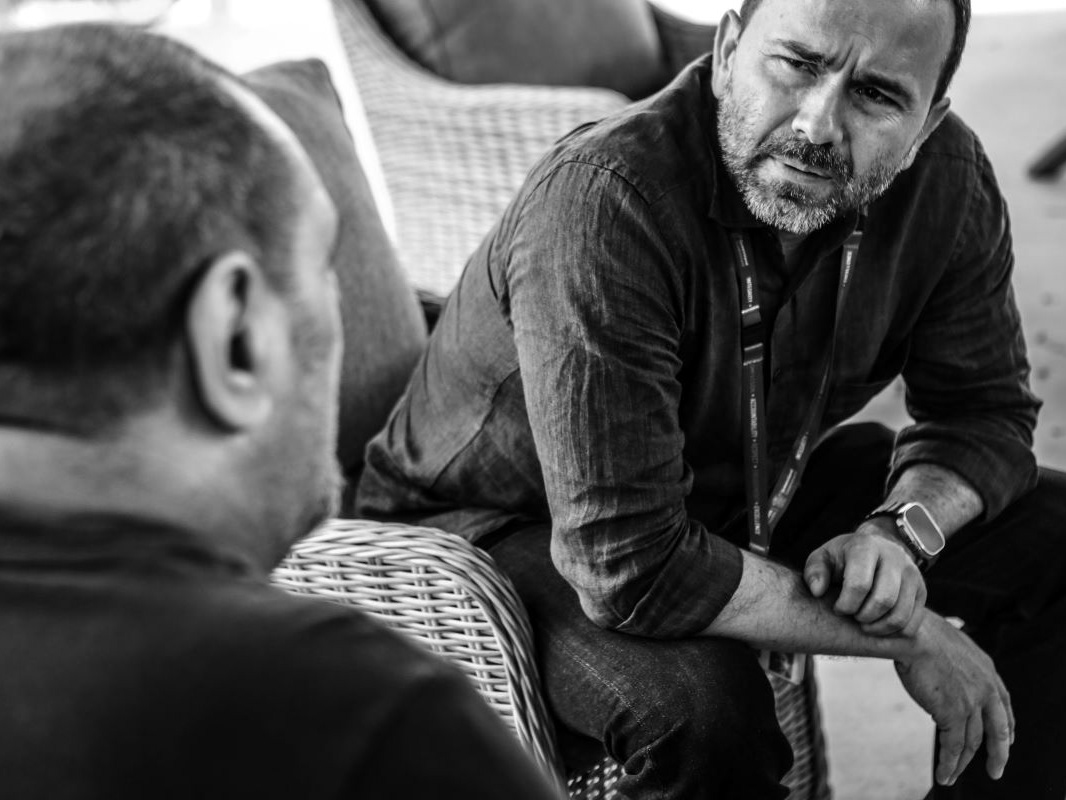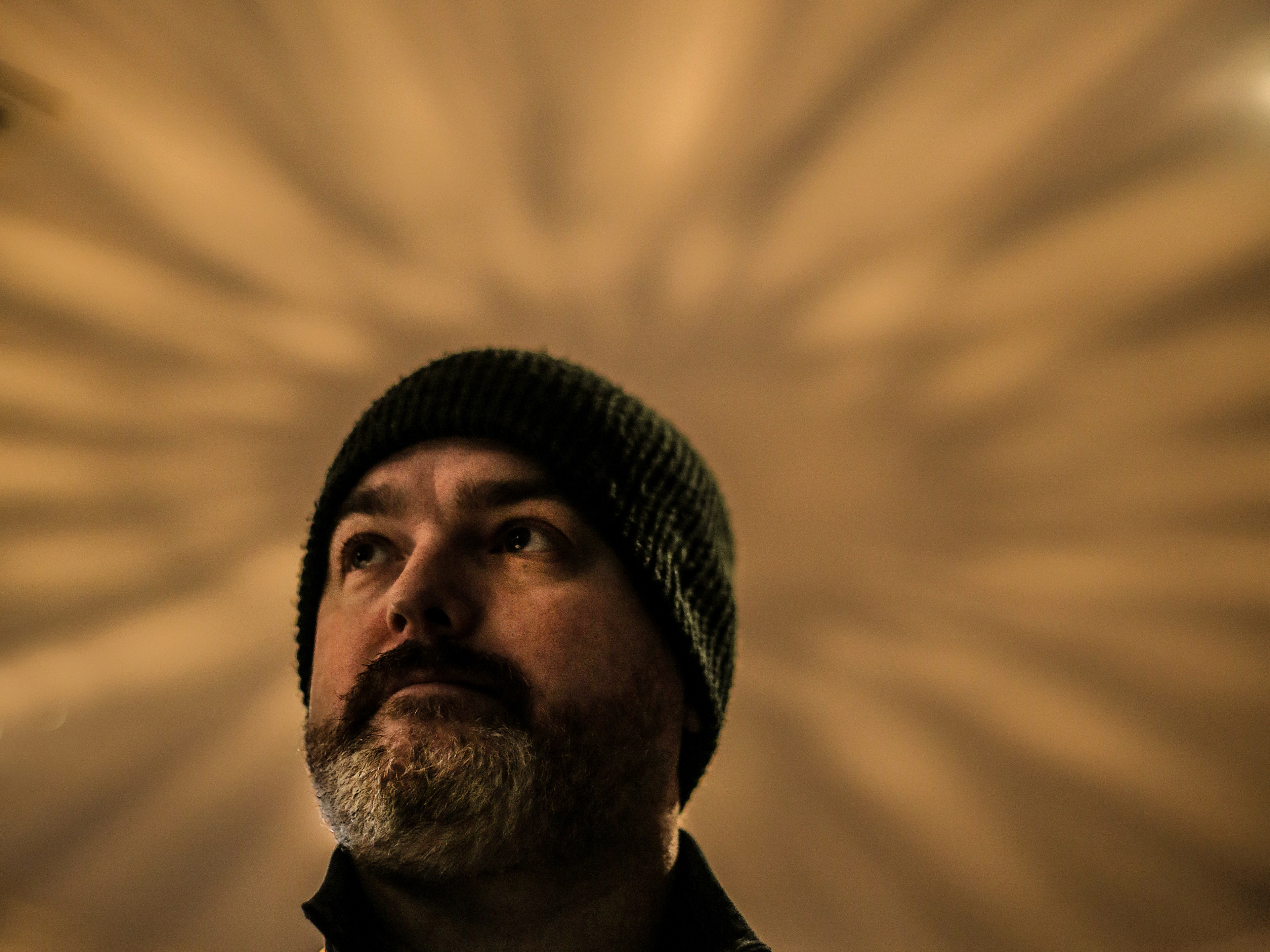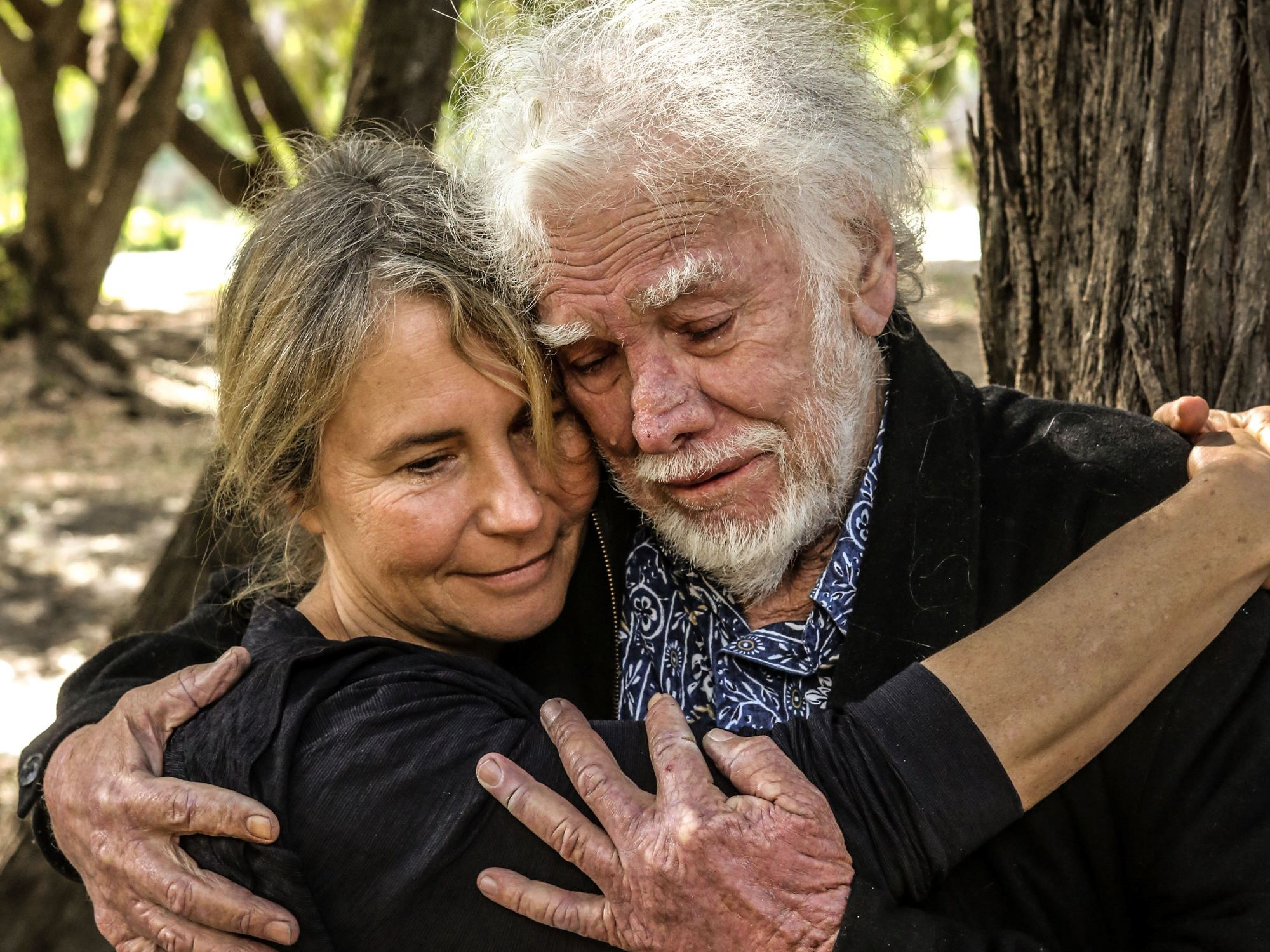One in three people who apply for and receive VAD medications never go on to use them. For many, it is enough just knowing the choice is there.
Phil O’Keefe struggled with the ethical dimensions of VAD. In the final stages of motor neurone disease, the 62-year-old was confined to a chair and dependent on ventilation 24 hours a day.
“You have to make a very difficult choice. And it is difficult,” he said.
Even after more than two years of progressive muscular weakness – two people needed to lift him in and out of bed and to the toilet – Phil said he was still undecided about VAD.
“I’m still on the fence – it’s finite – there’s no coming back once you take that drink,” he said.
Phil worried about the impact his choice would have on his family. The decision, whichever it was to be, weighed particularly heavily on Tris, Phil’s partner. Supportive of his choices, she was desperate not to lose him too soon. "I just worry sometimes that he's rushing it.
“I’ve always maintained that I’ll support Phil whatever his decision. His physical condition is deteriorating quite fast. But, you know, his mental capacity is quite strong. He has a zest for life and FOMO, perhaps he's jumped the gun?”
Phil understood Tris may never fully accept his decision. “A bit like all relationships, one person gets there before the other. And I didn’t just think about this two weeks ago, it’s been in the back of mind for the last two years, about what do we do at the end.
"And having been on the respirator almost non-stop the last five months, you know every day it’s in my thoughts, every night when I go to bed, it’s in my thoughts.
“It’s not a rash or impulsive decision but you can’t just keep on waiting and waiting. You have to make a move at some point. I want to maintain some dignity and control.
“The alternative is to waste away. I don’t want to be remembered as someone stuck in a bed being moved around in a hoist or a sling.“I love living and I want to live but I don’t want just to be alive.”
Seeing Phil's hesitation, his palliative care team, who are fully supportive of the VAD choice, suggested an alternative – a gradual withdrawal of ventilation combined with conscious or unconscious sedation until death. A slow but peaceful suffocation.
“Just because you’re exploring VAD doesn’t mean you have made the choice,” Phil explained. “It just means you have the option.
“It gives us great peace of mind that the option is there now, on the table. When the time comes, will I do it? I don’t know.”
Phil wanted his children to know that, even in the most difficult circumstances, it was possible to help others. To make that point, in 2020, he signed up to a world first clinical trial of a 'bionic' brain implant that allowed people with upper-limb paralysis to text, email and perform online tasks using nothing but their thoughts. The trial and Phil's particpation made headlines around the world.
Phil said at the time: "I've always been conscious that this won't be that helpful for me as an individual in the short-term. But those who come behind me will get that benefit."
He viewed VAD in the same way. "Even if I don't use it myself, talking about it will help others. "
It came down to having some control. “VAD gives you the opportunity to take the medication in a controlled environment, say goodbye to your loved ones, throw a party, whatever you’re going to do.
“You can make it a ‘Thank God that’s happened’ moment, instead of a ‘Oh my God what’s happened?’ moment.”
In the end, Phil chose not to pursue VAD but asked instead that his life-sustaining ventilation be removed.
On the day he knew he would die he assembled his family and friends to say farewell and handed out 'Admit One' tickets. His message: “You only have one life, use it wisely because there is
no turning back”.
no turning back”.
"You grab that ticket," he told the gathering. "Punch it full of holes, get it torn and tattered, cover it in stains. Spend it well because no one knows how long the journey will last."
Just before his pallitiave care team removed his ventilation, Phil turned in his own ticket, creased and stained. “He wouldn’t have wanted it any other way,” Tris said.
He died peacefully surrounded by family and friends and supported by palliatve care.
.

